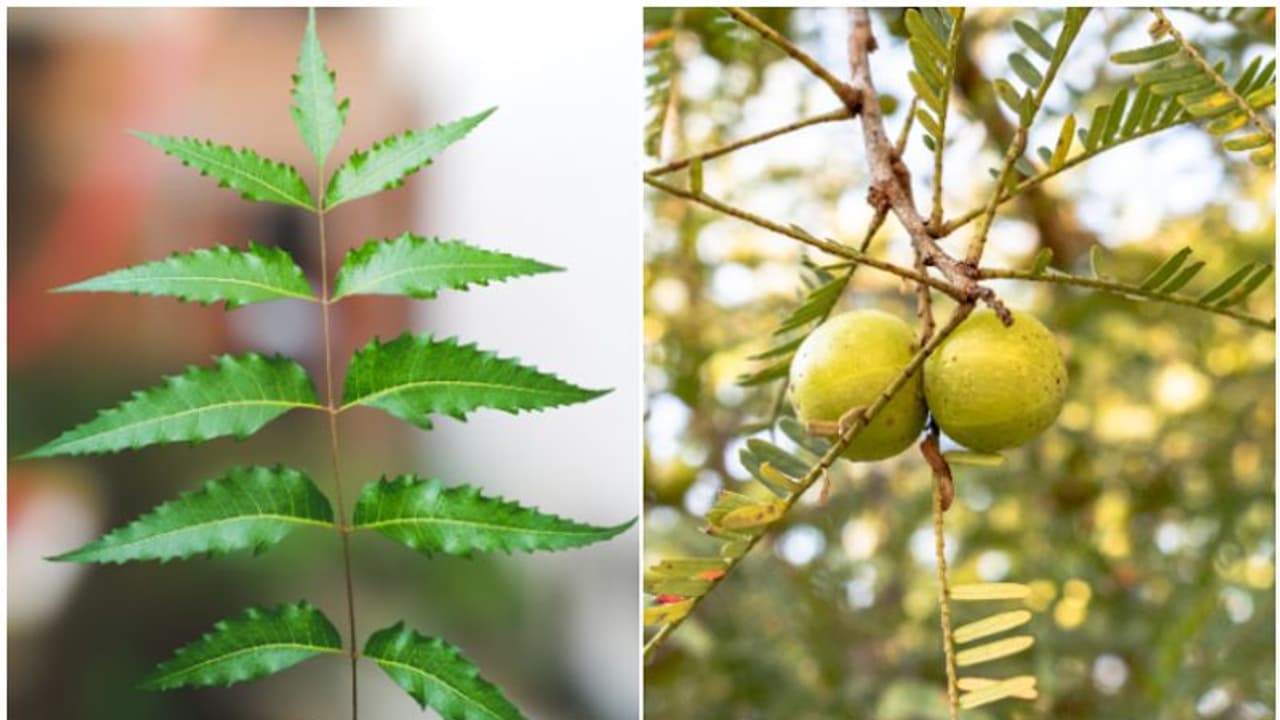Uncover the therapeutic benefits of 7 powerful Indian medicinal plants known for their healing properties. Learn about their traditional uses, modern research, and how to incorporate them into your wellness routine.
India is rich in traditional medicinal practices that have been passed down through generations. The country is home to a diverse range of plant species that possess remarkable therapeutic properties. Their effectiveness and usage have been validated by centuries of traditional knowledge and modern scientific research. However, it's important to consult with a qualified healthcare professional or Ayurvedic practitioner before using these plants for medicinal purposes to ensure safety and proper dosage.

Here, we highlight seven of the most effective Indian medicinal plants known for their healing benefits.
1. Neem (Azadirachta indica):
Neem is often referred to as the "wonder tree" due to its numerous medicinal properties. It has been used in Ayurveda for centuries. Neem leaves, oil, and bark contain powerful compounds such as nimbin and nimbidin, which exhibit antibacterial, antiviral, antifungal, and anti-inflammatory effects. Neem is commonly used for skin ailments, digestive disorders, and as an immune system booster.
2. Tulsi (Ocimum sanctum):
Tulsi, also known as holy basil, is considered sacred in Indian culture and revered for its medicinal properties. It is rich in antioxidants and possesses antimicrobial, anti-inflammatory, and adaptogenic properties. Tulsi leaves are commonly used in teas, herbal remedies, and Ayurvedic formulations to relieve respiratory ailments, reduce stress, improve digestion, and enhance overall well-being.
3. Ashwagandha (Withania somnifera):
Ashwagandha is an important herb in Ayurveda and is commonly referred to as Indian ginseng. It is an adaptogenic herb that helps the body cope with stress and promotes balance. Ashwagandha has been used to improve energy levels, enhance cognitive function, boost immunity, and support hormonal balance. Its roots and leaves are used in various formulations, including powders and capsules.
4. Turmeric (Curcuma longa):
Turmeric, a golden spice widely used in Indian cuisine, is known for its powerful anti-inflammatory and antioxidant properties. Curcumin, the active compound in turmeric, has been extensively studied for its potential health benefits. Turmeric is used to support joint health, promote digestive function, boost immunity, and protect against chronic diseases. It can be consumed as a spice, in teas, or in supplement form.
5. Brahmi (Bacopa monnieri):
Brahmi is a renowned herb traditionally used in Ayurveda for enhancing brain function and memory. It is often referred to as a "brain tonic." Brahmi contains compounds that support cognitive health, reduce stress, and promote mental clarity. It is commonly consumed in the form of powder, capsules, or as an ingredient in herbal teas.
6. Giloy (Tinospora cordifolia):
Giloy, also known as Guduchi, is an ancient herb valued for its immune-boosting properties. It is known to enhance the body's defense mechanisms and improve vitality. Giloy is used to treat fever, respiratory infections, digestive disorders, and support overall well-being. It can be consumed as a juice or in the form of capsules.
7. Amla (Phyllanthus emblica):
Amla, also known as Indian gooseberry, is a rich source of vitamin C and antioxidants. It is renowned for its rejuvenating properties and is used extensively in Ayurveda. Amla is beneficial for hair and skin health, boosts the immune system, supports digestion, and improves overall vitality. It can be consumed fresh, as a juice, or in powdered form.
